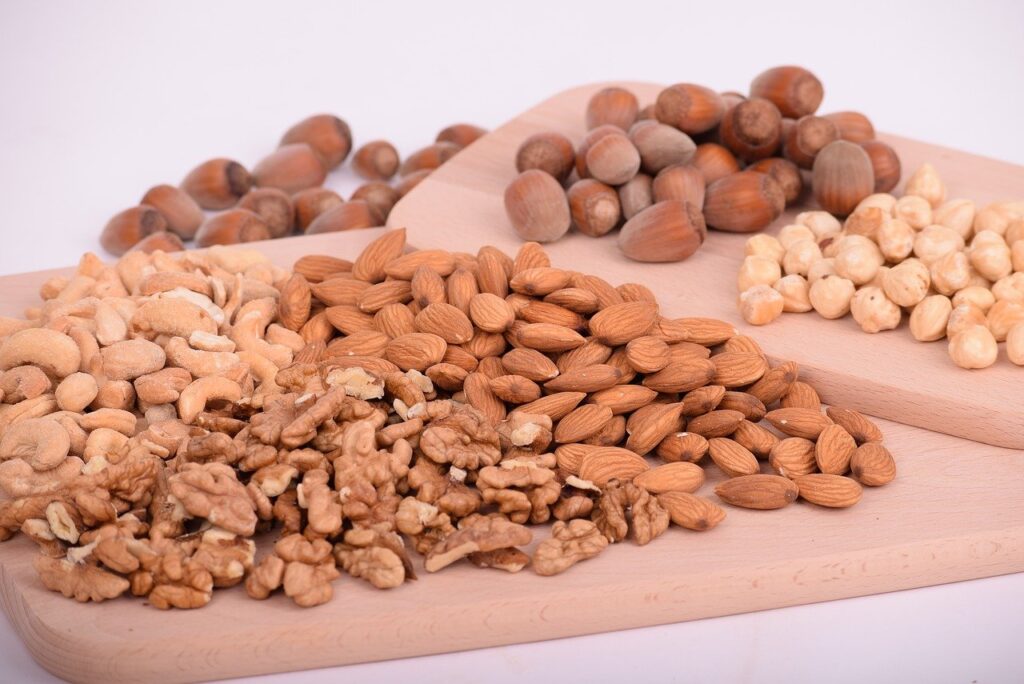
Open any magazine these days, and you are likely to find an article telling you to become plant based, for health reasons and also because the amount of meat we humans eat is a huge burden on our planet. Growing grain to feed cattle is one of the main reasons that the Rainforest is shrinking every day. But what about our protein needs? Don’t we all need meat and dairy foods in our diet to be healthy?
Protein literally means ‘Primary Substance’, an accurate description since all the tissues of the body are built and repaired with protein. The antibodies of the immune system, most hormones, the hemoglobin of red blood cells, and all enzymes have protein as a basic component. So yes, protein is hugely important to our health.
While we do all need protein, it’s a misconception that we specifically need animal protein – the reality is that many plant based foods contain more than adequate amounts of protein to keep up healthy, and there’s actually no need to be concerned if someone in your family (or you yourself!) feels inclined to become vegetarian or vegan. You might miss cheese at first, but you won’t suffer once you make sure to eat a variety of plant based foods.
Legumes/pulses are one of the best sources of plant based protein, but a lot of people have difficulties digesting them. I have two tricks to help solve that problem – one is really simple, it’s to always cook beans with seaweeds. I always have a pack of dried Kombu at home, and I use a stick of it when cooking lentil soup or bean chilli. Throw it in the pot at the start and fish it out just before you serve. It won’t make a huge difference to the taste but will make the dish much more nutritious and easy to digest.
Another way of improving the digestibility of pulses is to sprout them before you cook them. When I’m very organised, I soak a huge pot of beans (some you can mix, like the black and red kidney beans, but mainly I do one type at a time) for 24 hours, then drain and leave them in a warm place for another 12 hours or so, till they just start to sprout. All you want to see is the tiny nub of the sprout poking through a split in the skin of the bean. Then you cook them in water, and when they are cooked you can freeze them in amounts that are enough for a soup or a chilli. If beans upset your digestion this will make all the difference – it’s worth the effort I promise!
Tofu is another excellent source of protein, but I’m much happier eating the fermented one (we sell one called Feto, but there may be other brands). Fermentation helps to make Soy beans digestible, which is important if you are going to rely on tofu as your main source of protein. Tempeh is another source of fermented soy protein, as is miso.
Grains can contain surprising amounts of protein! Look out for amaranth and quinoa, which are seeds actually but cook like grains, and contain as much protein per serving as meat. Amaranth is particularly good for people who need extra nutrition – like breastfeeding mothers and children. You can combine Amaranth with bulgar wheat to make a pilaf.
Oats, Spelt and Kamut all contain very good amounts of protein, and are rich in healthy fats as well. Eaten in their whole form these grains are slow release carbs as well, so are good for blood sugar balancing. Spelt and Kamut are both older types of wheat and contain a much more nutrients than the overdeveloped durum wheat. Both can be used instead of arborio rice in a risotto – if you don’t believe me, look online and you will see lots of italian recipes for spelt risotto! Spelt is called Farro in Italian.
Nuts and seeds are rich in protein and fat, and are incredibly healthy when eaten in small amounts. One of my favourite ways of eating more seeds in particular is to lightly toast them in a dry pan, then drizzle with tamari and sprinkle over salads (or eat on their own as a snack!). They really are delicious and nutritious.
Lots of people say they would love to be vegan, but they can’t give up cheese and yoghurt. In Organico, the plant based yogurt and cheese section is a lot bigger than the dairy section! We have coconut, almond, rice, soy and oat yoghurts, and a huge range of cheeses for all dishes, from pizza to pasta to vegan gorgonzola. And it’s growing all the time! Come over and see for yourselves…
Finally, we have an exciting date for your dairy in November – on November 12 Rachel and I are hosting a free live Webinar: Balancing Your Hormones Naturally, with Marilyn Glenville. You will remember we had Marilyn visit us in Bantry for an evening event a couple of years ago – she’s a wonderful speaker. She will cover lots of women’s health issues and you will have a chance to ask questions.
The webinar is happening on Thursday, November 12, 7-8:30pm. To join us, you need to be signed up to our Newsletter before November 9. We will be sending out a link on the evening of the 9 for you to register for the Webinar.



